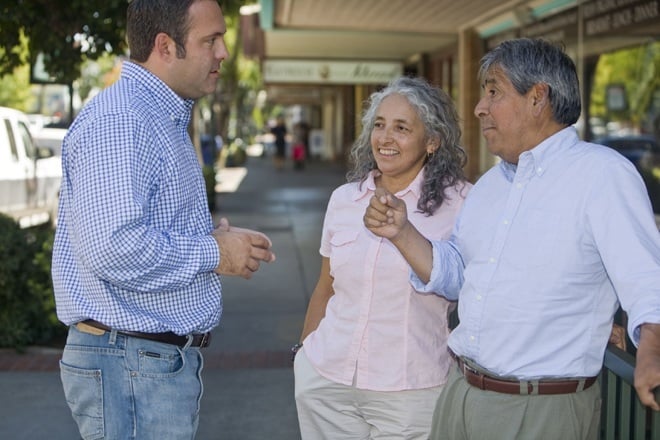California Online Poker Bill AB 431 Passes State Committee
Posted on: May 7, 2015, 11:19h.
Last updated on: January 12, 2023, 11:40h.

California online poker got a shot in the arm last week, as Assemblyman Adam Gray (D-Merced) added amendments to the language of his measure AB 431, which was then passed by the state’s Governmental Organization Committee.
The amendments came as a surprise, because the bill had very little language to speak of in the first place. AB 431, along with an identical bill (SB 278) introduced to the California Senate by Senator Isadore Hall (D-South Bay), is a shell bill designed to act as a vehicle to carry the debate through the legislative process.
The details are expected to be filled in later when, and if, California’s hugely fragmented and divided gambling industry can agree terms.
Hall and Gray are chairs of Senate and Assembly Government Organization committees of their respective houses, and as such have been able to facilitate hearings for the bills.
While the amendments would appear at first glance to be small, they are significant, and have been interpreted as an effort to appease the intransigent Pechanga Band of Luiseño Indians and its allies.
Qualified Entities
The Pechangas have been vehemently opposed to participation of so-called “bad actors,” or those companies that continued to take bets from Americans post-UIGEA, as well as California’s racetracks, in a regulated online poker market.
One significant change to the bill would appear to be the introduction of the phrase “qualified entities,” and the assertion that online poker would be limited only to these entities. While no definition has been provided, it does suggest potential room for the exclusion of certain parties, which should please the Pechanga coalition.
In fact, it appears that the new changes to the bill allowed it to pass through the committee with a unanimous vote last week. Previously, several tribes had registered their opposition to AB 431, a stance that has now been changed to neutral.
Consensus Needed
“We look forward to a meaningful process and arriving at comprehensive legislation that respects California’s longstanding public policy of limited gaming, protects children and the vulnerable, creates jobs, provides additional revenues for the State, and protects consumers and the integrity of the gaming industry from organizations that do not and have not respected US law,” announced Pechanga Chairman Mark Macarro, following the hearing.
Because online poker bills are classified as fiscal bills, they need a two-thirds majority to be passed into law. This is why disagreement among stakeholders has derailed legislative efforts in the past and will continue to do so until a consensus is reached.
At the recent meeting of the National Indian Gaming Association in San Diego, representatives of the Pechanga and their coalition partners showed a willingness to compromise on the bad actor question and proposed a unification of the tribal gaming industry, provided that they could all work with PokerStars against the racetracks.
No comments yet